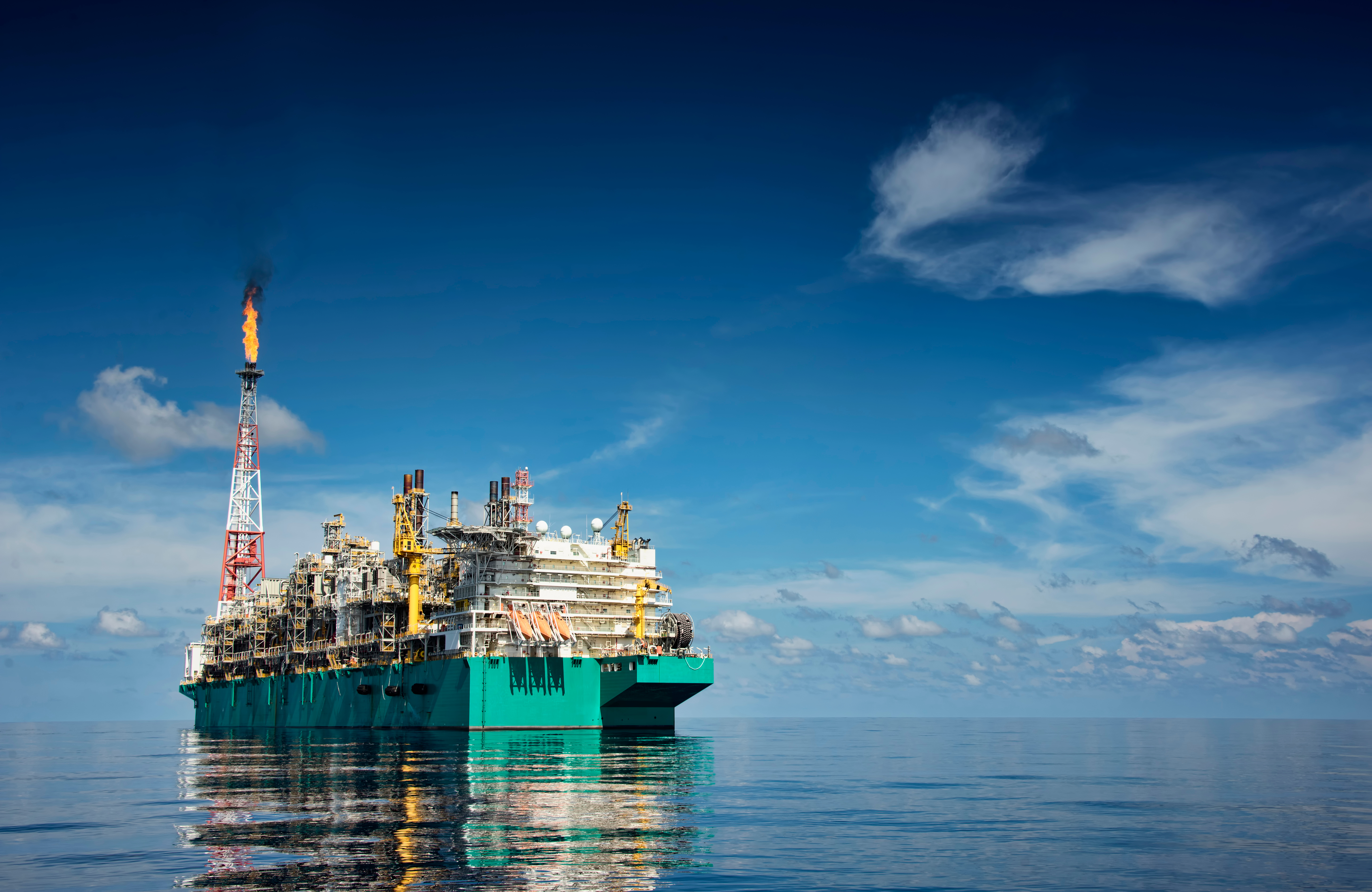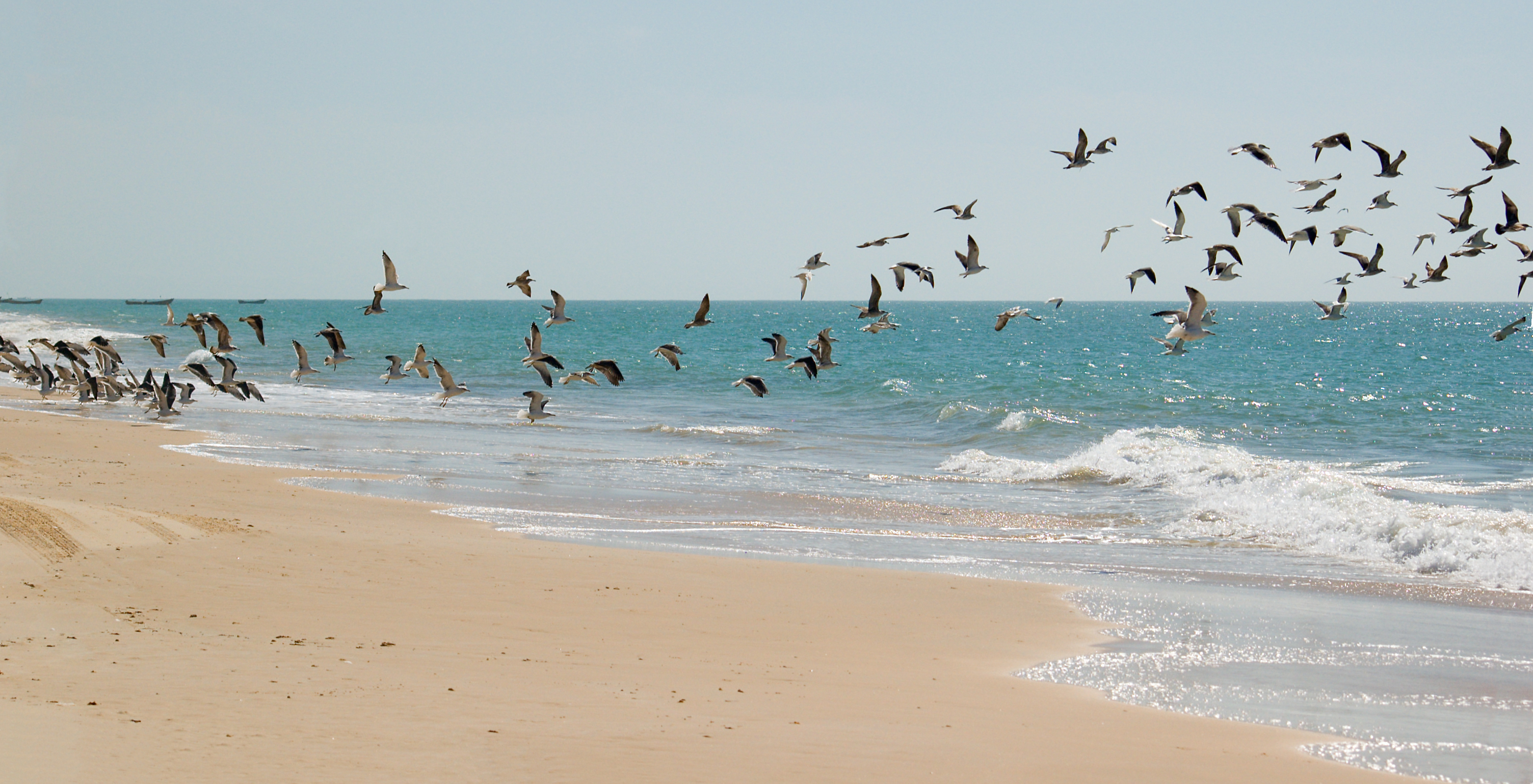Greater Tortue Ahmeyim Project
Africa's Deepest Offshore Project
Off the coast of Mauritania and Senegal, BP is fast approaching the finish line for its plan to extract and liquefy fossil gas in one of Africa’s deepest offshore projects.19472 The project threatens to lock both countries into a fossil development path and puts the world’s largest cold-water reef and migratory bird population at risk.
Right on the maritime border between the two West African countries, a consortium of BP (project operator), Kosmos Energy, Société des Pétroles du Sénégal and Société Mauritanienne des Hydrocarbures are developing two offshore gas fields, Tortue and Ahmeyim.14819 The companies want to extract gas from ultra deep wells in water depths of 2,850 meters (9,350 ft).14821
In Phase 1, the gas would flow from Tortue and Ahmeyim through an 80 km (49.71 mi) long underwater pipeline to a floating production, storage and offloading (FPSO) vessel where the gas is to be processed. From here, the gas would be transferred via a 35 km long underwater pipeline to a Floating Liquefied Natural Gas (FLNG) terminal.19473 A 1 km long breakwater out of concrete and rock has been built to protect the vessel and export carriers from harsh weather and ocean conditions. Both FPSO and FLNG vessels have arrived at their destination on the Mauritania and Senegal maritime border and BP aims to begin LNG production in late 2024.1949015175 However, this date is not set in stone, as the project has faced numerous delays in the past.15179
The Greater Tortue Ahmeyim (GTA) reserves hold almost 425 billion cubic meters of fossil gas. BP and its partners are already exploring the possibility of producing another 2.5-3 million tons of LNG (ca. 3.4-4.08 billion cubic meters of gas) per year in a second project phase worth around USD 5 billion.15181 BP is also considering the development of further fields in the basin, which is estimated to hold up to 1,133 billion cubic meters of gas.14823 It is unclear whether any of the gas will actually end up in Senegal and Mauritania, or if it will all go to international markets. If burned, these vast reserves would release around 2.2 billion tons of CO₂ into the atmosphere. In 2021, journalists from Greenpeace UK estimated that BP’s plans threaten to recklessly chip away between 0.3 and 1 percent of the remaining carbon budget to limit global warming to a vital 1.5°C.14825
Note: Reputational risk projects on GOGEL are updated annually. This article was last updated November 7 2024.

BP Outrages International Scientists
In 2019, investigations by the BBC and the Organized Crime and Corruption Reporting Project (OCCRP) uncovered details regarding BP's purchase of the GTA concession from Timis Corporation in 2017.151831518515187 The report accused Timis Corporation of maintaining corrupt business relationships with members of the former president's family. These ties possibly helped the relatively unknown company get its hands on the gas concessions ahead of other players.15187 The investigations raised the question whether BP's deal with Timis Corporation in 2017 rewarded an allegedly corrupt company.19474 Both BP and Timis Corporation deny any wrongdoing.1518915191 Senegalese authorities launched an investigation into the corruption allegations, but the case was closed in 2020 due to insufficient evidence.15193 The anti-corruption movement Transparency International has urged authorities in other countries to investigate the available evidence.15195
In the meantime, BP and its partners have pressed on with GTA. While BP and the governments of Senegal and Mauritania market GTA as a prestige project, local communities, environmentalists and researchers have raised serious concerns.14827
In 2018, a group of international scientists advised the Mauritanian government to establish marine conservation zones in the area where BP wants to build the pipelines, the FPSO and the LNG terminal.14825 They also demanded thorough environmental assessments for any fossil fuel development in the region. Months later, 10 marine scientists wrote an outraged letter to BP, stating that the company’s environmental impact assessment downplays the serious ecological risks of the GTA project for water birds and the marine environment.15197 The letter calls BP’s assessment of expected impacts “fundamentally wrong". Although the company reportedly agreed to revise the impact assessment, the project is moving ahead towards commissioning without a new report being published.15199
The coast off Senegal and Mauritania is a unique region rich with wildlife. It provides a refuge for millions of water birds each year on their journey between Africa and the Arctic. The birds rely on these coastal waters to feed and rest on their route.
Less than 5 km away from the under construction terminal lies Mauritania’s Diawling National Park, home to over 250 different species of birds.14825 At a similar distance in Senegalese waters, whales and dolphins feed in the Marine Protected Area of Saint-Louis. The Langue de Barbarie National Park, a nesting site for sea turtles, is 15 km away from BP’s planned LNG terminal. The Djoudi National Park is only 35 km away. Djoudi, a large wetland in the Senegal River Delta, is a sanctuary for over 1.5 million birds and protected as a UNESCO World Heritage site.14831 Even closer to the gas infrastructure lies the Guembeul Natural Reserve. Flamingos, tortoises and monkeys live in this important wetland.14825

A Unique Ecosystem at Risk
BP and the other companies also risk destroying the world’s largest cold-water coral reef.14825 The reef stretches 580 km along the Mauritanian coast down to Senegal. The coral formations are 100 meters high and lie half a kilometer below the sea’s surface. This unique ecosystem took over 200,000 years to grow and stores enormous amounts of carbon.15201
The waters surrounding the reef are one of the most biodiverse areas in the world. This part of the Mauritanian coastline is critical for the survival of endemic species.14833 Fish, crabs, giant clams and sponges live here - as does black coral, one of the oldest living organisms on Earth.15203 BP’s newly constructed gas pipelines snakes through one of the most sensitive parts of the reef.14825
The coral reef is an important habitat for fishery resources in the region.14829 The project is a nightmare for the local fishing communities who depend on fish for their livelihood and as a main source of food. Notably, decisions on the gas project were made without consulting local residents.19478 The situation for the local fishing industry has been dire for many years due to dwindling fish populations and the effects of climate change.19479 BP and its partners are taking the last piece of bread from their table, as a representative of a Saint-Louis based fisherfolk union recently told a reporter.19480 The project’s platforms are permanently lit, attracting fish shoals to so-called exclusion zones designed to protect the extraction infrastructure. Fisherfolk are not allowed within a specified radius of the infrastructure, reducing both the area available to fishers and the amount of fish in the area that is available to them. Residents doubt BP will offer any compensation for the fishers’ loss of income.1948119482 Many have been left unable to sustain themselves with fishing, while some women living on the coast have had to resort to prostitution to survive.15209 The situation on the ground is desperate, but it could soon become untenable.
A spill of condensate from BP’s wells could poison the rich wildlife on the West African coast and the livelihood of coastal fishers.14825 Condensate is a byproduct of gas extraction that is almost invisible and therefore extremely difficult to clean up. Unless it is contained, a condensate spill would hit the coast of Mauritania and Senegal in less than a week. According to the project’s own impact assessment, a spill would affect the marine areas of up to 9 countries along the West African coast.15213 It would reach the Mauritanian and Senegalese national parks, the Saint-Louis Marine Protected Area and the Guembeul Wetland Reserve. The poisonous condensate would kill birds, whales, dolphins, fish and other endangered animals on the West African coast.1949319492 If fishing populations are currently struggling, a condensate spill could soon wipe them out. The GTA project is a serious threat to the coastal ecosystems and the people of Mauritania and Senegal.
Sources: